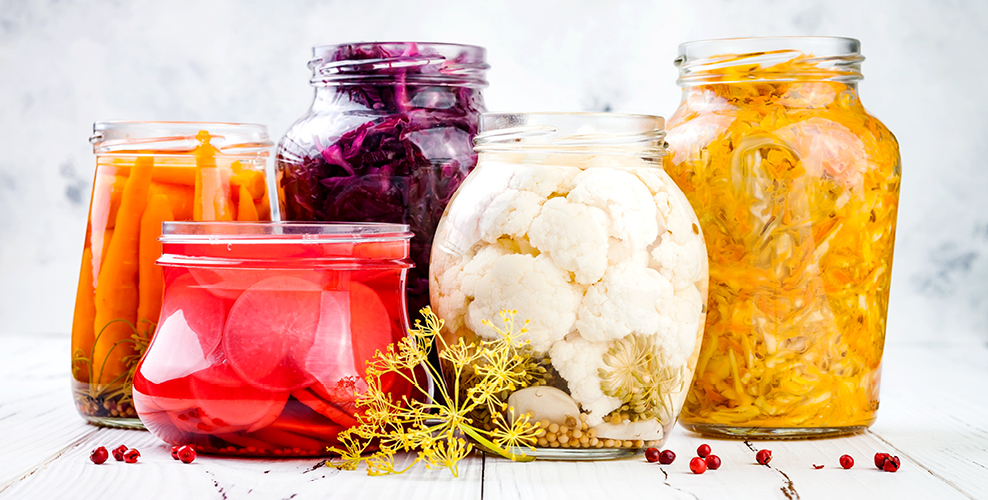Why should you include probiotics in your diet?
 What are probiotics?
What are probiotics?
The definition comes from the International Scientific Association for Probiotics and Prebiotics defining probiotics as ‘live microorganisms that, when administered in adequate amounts, provide a health benefit to the host, a living being, in and on which the microorganisms live.’1
In other words, probiotics are bacteria that naturally live in your digestive tract, where they confer positive health benefits.
Previously, the term ‘probiotics’ encompassed fermented foods such as kefir, sauerkraut and yoghurt, however these are excluded from the current scientific definition, which focuses purely on probiotic microorganisms, rather than foods that promote their proliferation in the body.1
The good bacteria in your gut
Let’s talk about the human microbiome. Beneficial microorganisms such as bacteria, fungi and protozoa (single cell organism) reside on and in your body and form what we refer to as human microbiome.1
Your microbiome contains up to 100 trillion microbes, most of which are located at parts of the body that have some degree of exposure to the external environment – like your skin and your gastrointestinal, respiratory and urogenital tracts.2
The friendly flora in your gut have many functions, including supporting the health and function of your digestive health as well as maintaining a healthy immune system.
What can cause a disruption in gut flora?
There are many things that can contribute to a disruption to the friendly flora in your gut, some of which include:
- The use of antibiotics
- Poor diet e.g. highly processed or lacking in a wide variety of whole grains, fruits and vegetables
- Exposure to harmful bacteria
The good news is you can support the health of your gut flora
Here are some dietary tips on how you can do it:
- Include fermented foods into your diet on regular basis. These foods contain live cultures of beneficial bacteria. Some examples include yoghurt, sauerkraut, kombucha, kefir, kimchi, cultured butter, tempeh, miso and sourdough bread
- Eat plenty of fresh plant foods that are rich in fermentable fibre. This type of fibre is fermented by the gut bacteria and is found in fruits and vegetables such as Jerusalem artichokes, leeks, onions, garlic, yams, bananas, and their cousin’s plantains
- Avoid or minimise your consumption of highly processed and refined foods
Probiotic supplements for digestive system health
In addition to including probiotics in your diet, you could also consider taking a probiotic supplement. Ideally, look for one that contains multiple strains. These support the health of the digestive system and its function, and also:
- Relieve digestive symptoms such as flatulence, abdominal bloating and bowel discomfort
- Maintain friendly gut flora during antibiotic use and help to restore it afterwards
- Support the health of the immune system
References
- Hill C, et al. Nat Rev Gastroenterol Hepatol 2014;11(8):506-514.
- Ursell LK, et al. Nutr Rev 2012;70(Suppl 1):S38–S44.


















